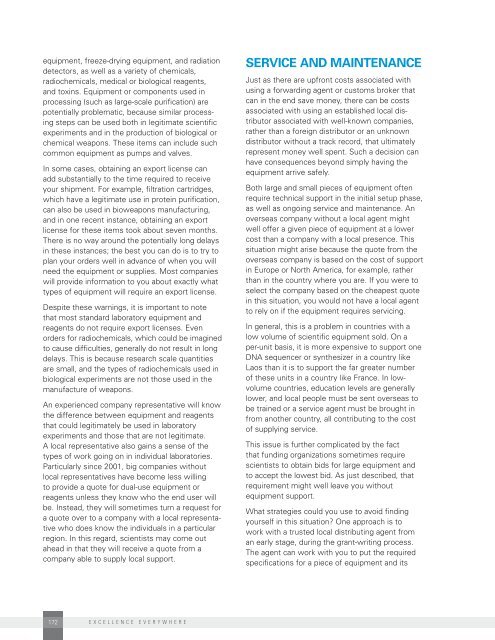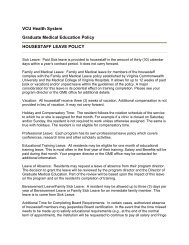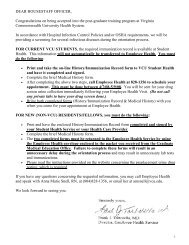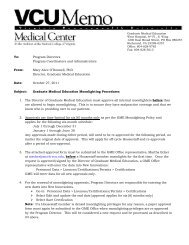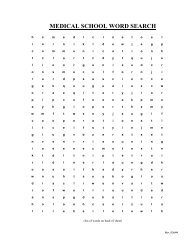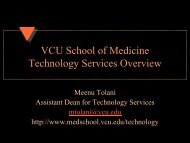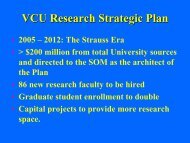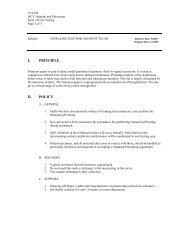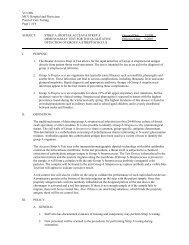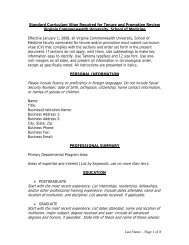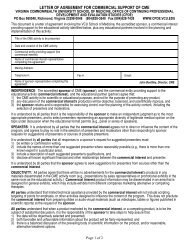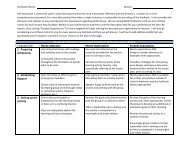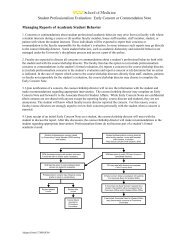Excellence Everywhere - National University of Ireland, Galway
Excellence Everywhere - National University of Ireland, Galway
Excellence Everywhere - National University of Ireland, Galway
- No tags were found...
You also want an ePaper? Increase the reach of your titles
YUMPU automatically turns print PDFs into web optimized ePapers that Google loves.
equipment, freeze-drying equipment, and radiationdetectors, as well as a variety <strong>of</strong> chemicals,radiochemicals, medical or biological reagents,and toxins. Equipment or components used inprocessing (such as large-scale purification) arepotentially problematic, because similar processingsteps can be used both in legitimate scientificexperiments and in the production <strong>of</strong> biological orchemical weapons. These items can include suchcommon equipment as pumps and valves.In some cases, obtaining an export license canadd substantially to the time required to receiveyour shipment. For example, filtration cartridges,which have a legitimate use in protein purification,can also be used in bioweapons manufacturing,and in one recent instance, obtaining an exportlicense for these items took about seven months.There is no way around the potentially long delaysin these instances; the best you can do is to try toplan your orders well in advance <strong>of</strong> when you willneed the equipment or supplies. Most companieswill provide information to you about exactly whattypes <strong>of</strong> equipment will require an export license.Despite these warnings, it is important to notethat most standard laboratory equipment andreagents do not require export licenses. Evenorders for radiochemicals, which could be imaginedto cause difficulties, generally do not result in longdelays. This is because research scale quantitiesare small, and the types <strong>of</strong> radiochemicals used inbiological experiments are not those used in themanufacture <strong>of</strong> weapons.An experienced company representative will knowthe difference between equipment and reagentsthat could legitimately be used in laboratoryexperiments and those that are not legitimate.A local representative also gains a sense <strong>of</strong> thetypes <strong>of</strong> work going on in individual laboratories.Particularly since 2001, big companies withoutlocal representatives have become less willingto provide a quote for dual-use equipment orreagents unless they know who the end user willbe. Instead, they will sometimes turn a request fora quote over to a company with a local representativewho does know the individuals in a particularregion. In this regard, scientists may come outahead in that they will receive a quote from acompany able to supply local support.Service and MaintenanceJust as there are upfront costs associated withusing a forwarding agent or customs broker thatcan in the end save money, there can be costsassociated with using an established local distributorassociated with well-known companies,rather than a foreign distributor or an unknowndistributor without a track record, that ultimatelyrepresent money well spent. Such a decision canhave consequences beyond simply having theequipment arrive safely.Both large and small pieces <strong>of</strong> equipment <strong>of</strong>tenrequire technical support in the initial setup phase,as well as ongoing service and maintenance. Anoverseas company without a local agent mightwell <strong>of</strong>fer a given piece <strong>of</strong> equipment at a lowercost than a company with a local presence. Thissituation might arise because the quote from theoverseas company is based on the cost <strong>of</strong> supportin Europe or North America, for example, ratherthan in the country where you are. If you were toselect the company based on the cheapest quotein this situation, you would not have a local agentto rely on if the equipment requires servicing.In general, this is a problem in countries with alow volume <strong>of</strong> scientific equipment sold. On aper-unit basis, it is more expensive to support oneDNA sequencer or synthesizer in a country likeLaos than it is to support the far greater number<strong>of</strong> these units in a country like France. In lowvolumecountries, education levels are generallylower, and local people must be sent overseas tobe trained or a service agent must be brought infrom another country, all contributing to the cost<strong>of</strong> supplying service.This issue is further complicated by the factthat funding organizations sometimes requirescientists to obtain bids for large equipment andto accept the lowest bid. As just described, thatrequirement might well leave you withoutequipment support.What strategies could you use to avoid findingyourself in this situation? One approach is towork with a trusted local distributing agent froman early stage, during the grant-writing process.The agent can work with you to put the requiredspecifications for a piece <strong>of</strong> equipment and its172 excellence everywhere


